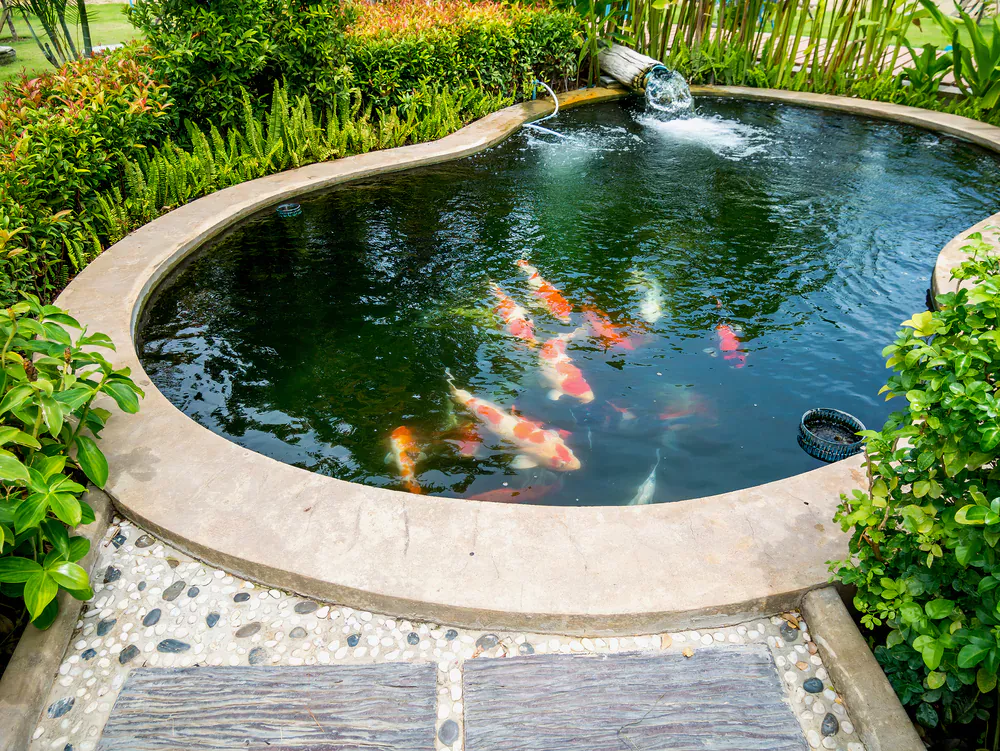If you’ve been considering getting some fish for a backyard pond, you probably want to know what the most popular pond fish are. So I’m going to share my list of the 7 most popular pond fish that you should definitely buy. Just keep in mind, these aren’t numbered in any particular order. So let’s find out what other fish you can introduce to your backyard pond.
What Is Pond Fish?
A pond is a body of standing water, either natural or artificial, which is generally smaller than a lake. While the term “Pond Fish” refers to a wide range of different fish species, each with its own unique characteristics and needs that can live in an outdoor pond. There are thousands of different types of pond fish available worldwide but later in this article, we will discuss some of those species.
Pond Vs Fish Tank
As I mentioned earlier, A pond is a body of standing water, either natural or artificial, that is usually smaller than a lake. While a fish tank is an aquarium for keeping fish. The term “aquarium” is used to describe the glass tanks used to hold fish and other animals.
Here are some of the interesting differences between a pond and a fish tank:
1- A pond is usually larger than a fish tank and has more depth to it.
2- There is no filter or pump in a pond while fish tanks do have a filter to maintain water quality.
3- Ponds are not just for fish, they can be used for many other creatures too such as frogs, newts, turtles, etc…Fish tanks are only for keeping fish in!
4- Fish tanks are enclosed, so you have to constantly feed your fish with pellets or live food, but ponds allow you to let nature take its course when it comes to feeding your fish.
5- Fish tanks are usually heated to keep the water temperature constant, while ponds don’t need to be as warm because they’re usually outdoors and often have natural heaters, like rocks or plants, which keep the water warmer than it would be otherwise.
6- Fish tanks are easier to maintain than ponds because you don’t have to worry about things like plants dying off or algae problems etc…Ponds need a lot more maintenance than fish tanks do but they also give you a lot more enjoyable when you see them working well!
7 Most Popular Pond Fish
1- High Fin Banded Shark
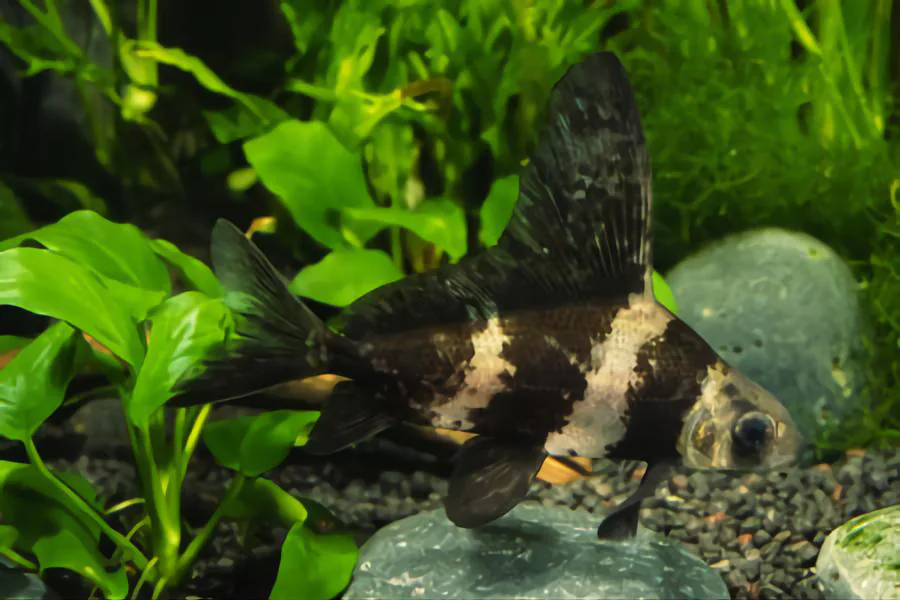
The High Fin Banded Shark, also known as the Black banded Shark, is a very small member of the catfish family. It is native to Asia and Africa. The Banded Shark is a peaceful fish and will get along well with other fish in your pond. It can reach up to 2 inches in length and has a lifespan of about 5 years.
It is recommended that you keep at least three Banded Sharks in your outdoor pond because they do better when they have companionship. The Banded Shark prefers to swim around on the surface or near it and will rarely go deep into the water. This makes it an ideal fish for shallow ponds that have little depth.
2- Golden Tench
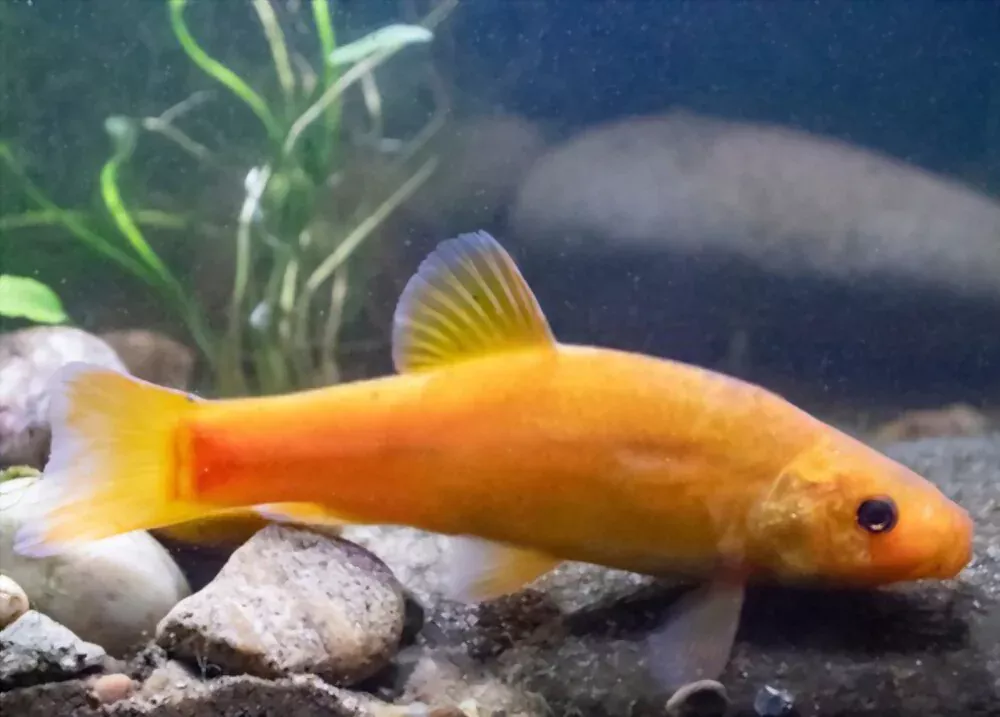
The Golden Tench is a species of fish that belongs to the family Carp and Cyprinidae. It is also commonly called golden carp, yellowfish, and red finned tinca. It is native to Europe and Asia and can be found in lakes, ponds, rivers, and slow-moving streams. The Golden Tench is a popular pond fish because it is beautiful, hardy, and easy to care for.
The Golden Tench has a long body that has a rounded belly and a flat back with large scales on its sides and back. The head is large with small eyes that are located low on the head. It has large pectoral fins which are used for swimming and cannot be used for steering like other species of fish have on their fins. The male Golden Tench has a dark red tail while the female doesn’t have any coloration at all in her tail area due to breeding purposes only.
The Golden Tench can grow up to 12 inches long but most specimens only reach about 8 inches long when fully grown in captivity or about 10 inches long in its natural habitat where there are no predators such as humans who want to eat them for food or sport fishing purposes.
3- Pond Loach
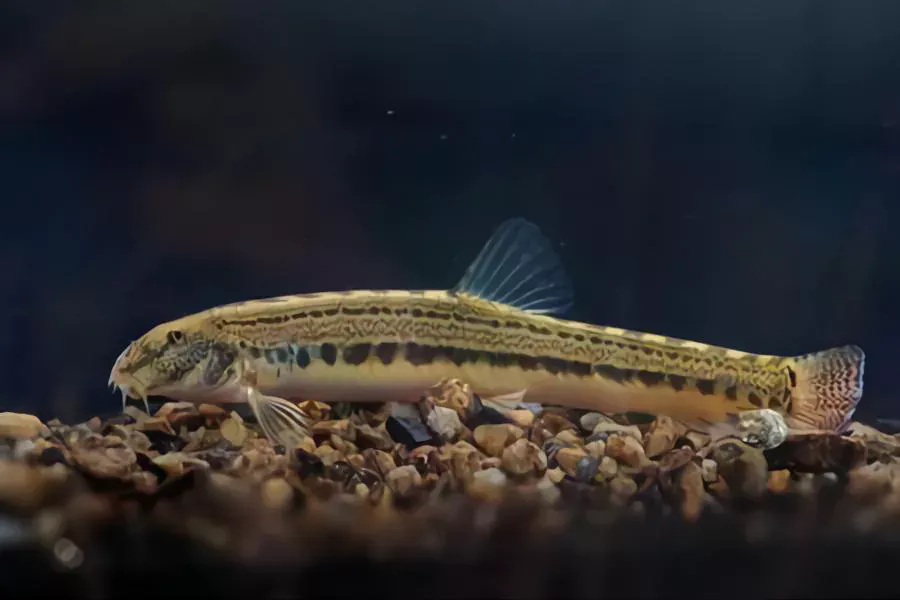
If you are new to the world of fishkeeping and want to start with something simple, colorful, and peaceful, then a pond loach is probably the right choice. These attractive fish are not just beautiful to look at but also make great companions for any type of pond.
Pond loaches are freshwater fish belonging to the family Cobitidae and genus Botia. They can be found in Southeast Asia, India, and China. There are over 100 species of these fish, which vary in color from gold to red and brown with different patterns on their bodies. Their average size is about 6 inches long, but some varieties can reach up to 20 inches long!
Pond loaches are omnivores that eat both plant matter and animal matter. Their diet consists mostly of algae and insects found in the water or on its surface. They also feed on snails, worms, crustaceans, and small fish when they get the chance.
4- Guppy Fish
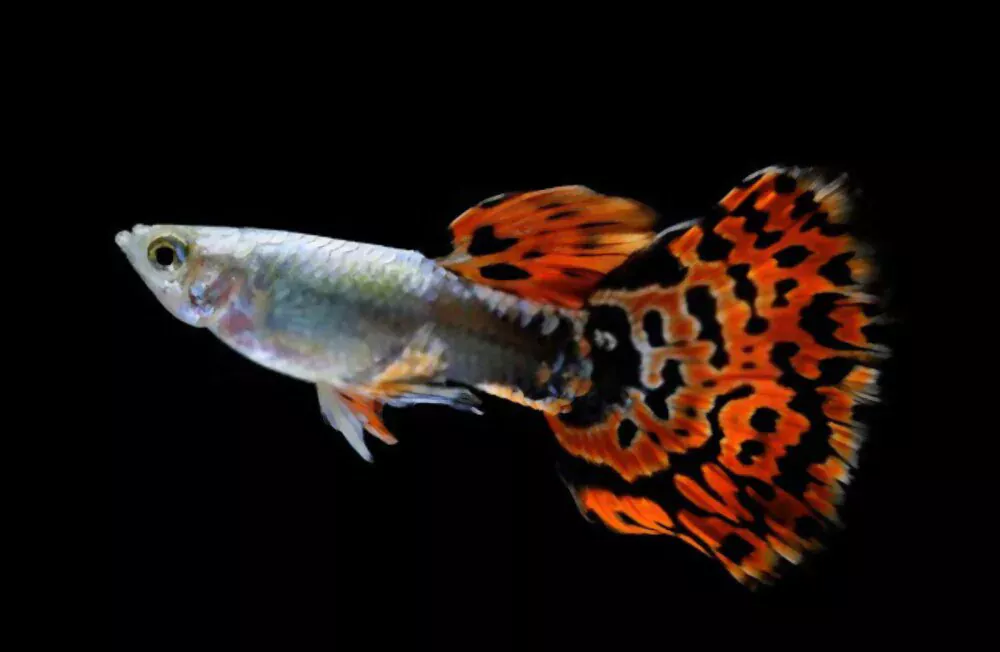
Guppies are also popular pond fish because they are small and easily adapt to a wide range of conditions. Although they are one of the most common types of aquarium fish, they also make great pond fish. They’re very hardy and will live in just about any water temperature you can create in your pond or aquarium. You can keep several male guppies in the same tank as long as you provide them with plenty of space and hiding places for each one to have his territory and avoid fighting.
Guppies have a reputation for being finicky eaters and having sensitive stomachs, but this isn’t always true. If you’re having trouble getting your guppies to eat, try offering them live food such as worms or brine shrimp, which contain more nutrients than flake food does.
If you want to breed your guppies, be sure that both parents are healthy before adding them to the breeding tank. The female will lay up to 50 eggs after spawning once every two days for up to three weeks! The eggs will hatch in three days and become free-swimming fry in four more days if left with their parents until then; otherwise, they won’t survive without their parents’ help.
5- Siamese Algae Eater
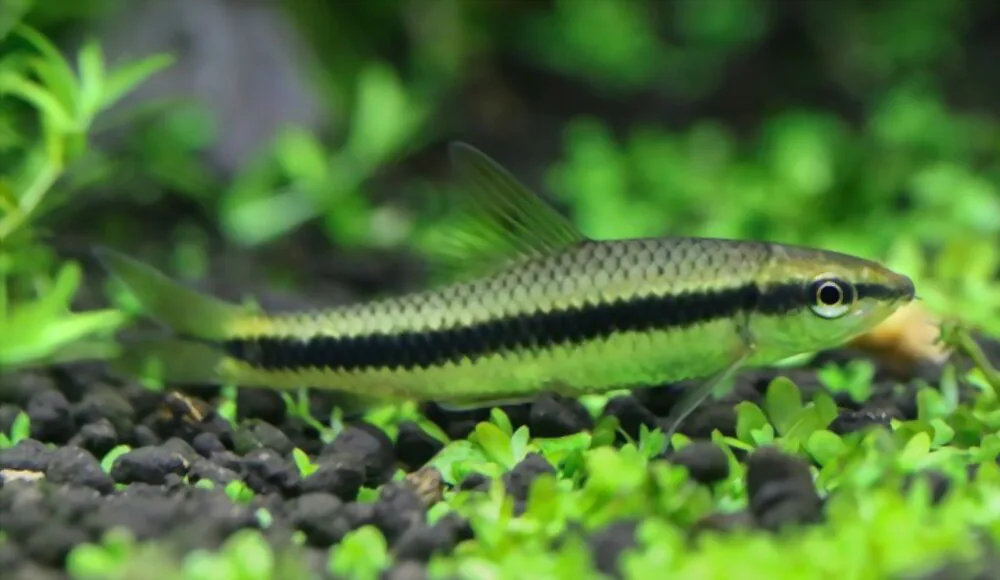
The Siamese algae eater is a freshwater fish that is native to Thailand, Myanmar, and Vietnam. The fish has been popular for generations because of its ability to eat the green algae that grow in ponds. The Siamese algae eater is also known as the dwarf gourami or dwarf dragonfish. This fish belongs to the family Trichogasteridae and has a lifespan of 3-5 years.
The Siamese algae eater gets its name from its long pointed snout which it uses to feed on algae in the water. The body shape is rounder than other types of algae eaters and they can grow up to 6 inches long.
To keep this fish happy in your pond, make sure you have plenty of plants and driftwood for them to hide under if they are feeling threatened. They are also very active swimmers so make sure there are lots of hiding places around the pond so they can get away when needed.
They will eat just about anything they can fit in their mouth so be careful not to overfeed them as they may become sick or die from overeating! If you notice any signs of illness such as cloudy eyes or bloated stomachs, get them checked out by a vet immediately.
6- Molly Fish
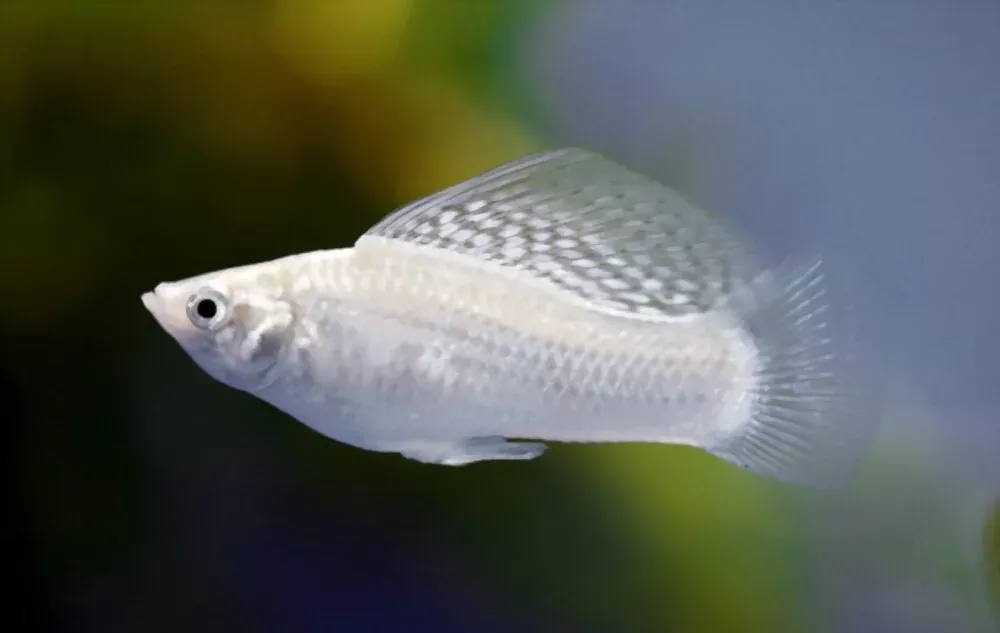
The molly fish is also a very popular pond fish because it is very easy to take care of and is one of the most beautiful fish available. They are quite hardy and can live in a wide range of water conditions.
Mollies are known for their bright colors, but they come in a variety of other colors as well, including red, yellow, blue, purple, green, and orange. The molly fish is also commonly known as the ‘flowerhorn’ because its body shape resembles that of a flowerhorn fish.
Mollies are peaceful and active fish that like to swim around the surface of their watery habitat. They’re also known to be social creatures that enjoy being kept in groups; so if you want to create an interesting display for your backyard, consider keeping more than one type of molly in your outdoor pond.
7- Golden Orfe
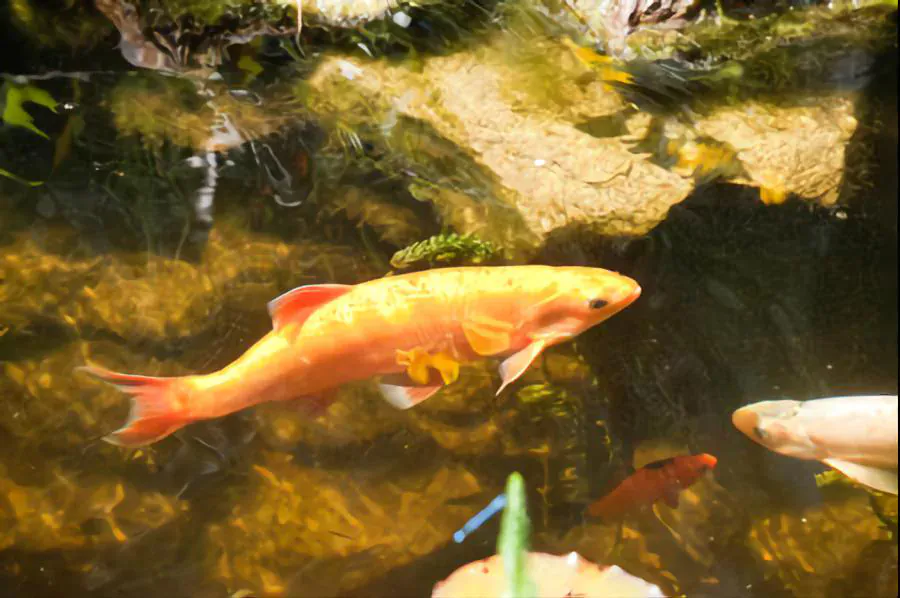
The Golden orfe is a hardy fish that can live in most conditions and will flourish in a pond environment. They are very good for eating and are great for keeping your pond clean as they will eat all of the dead food that has fallen to the bottom of your pond. If you want to keep some of these fish then you will need at least a 200-gallon pond, although they will do well in smaller ponds if there is plenty of food available to them. They are best kept in groups of at least six individuals. This ensures they have enough space to swim around and not become aggressive toward one another.
The golden orfe has gold and orange stripes, which makes it stand out from the rest of your pond fish. The golden orfe is a great choice if you want to add some color to your pond. It is an active swimmer and will spend most of its time swimming around your pond. While this makes it an interesting addition to any pond, it also means that you must have enough space for all of them to swim around in.
Fish That Can Not Survive In Outdoor Ponds
1- Fancy Goldfish
There is a myth that goldfish can survive in outdoor ponds. I know these fish are hardy, but they need the proper conditions to live long and healthy lives. They can even live up to 15 years when properly cared for but when it comes to ponds the answer is No. They should not live in outdoor ponds because they don’t tolerate cold temperatures well and can easily jump out of the water.
2- Plecos
Unfortunately, plecos cannot survive outdoors in ponds because they need warmer water temperatures than most ponds to provide during winter months when outdoor temperatures drop below freezing point. If you want to keep plecos during the winter months, you should place them indoors instead or keep them in an aquarium.
Frequently Asked Questions (FAQs)
Can Pond Fish Breed?
The vast majority of pond fish are not meant to breed. In fact, only a handful can be bred in captivity. For this reason, it is important that you do your research before buying any type of fish.
If you want to breed your own fish, then you must ensure that the following requirements are met:
- The water should be clean and free from toxic chemicals.
- The temperature of the water must be between 18°C and 25°C (64°F – 77°F).
- Water clarity must be within 2 meters (6 feet).
- There must be no predators present in the pond.
- There must be sufficient space in the pond for breeding purposes.
What Pond Fish Eat Algae?
Plecos are excellent algae eaters, which makes them a great choice for outdoor ponds. They will eat most types of algae, including green water, string algae, blanket weed, and black brush algae. They also help keep your pond clean by eating leftover food particles that other fish may miss.
What Pond Fish Eat Tadpoles?
Generally, all omnivorous pond fish will eat tadpoles. However, it is important to note that some species of fish are more aggressive than others. Also, some species of tadpole are more toxic than others. Therefore, you should choose an omnivorous species that is not too aggressive, and the tadpoles you have, don’t have toxic skin.
What Pond Fish Eat Snails?
The gourami is an aggressive predator that will eat almost any food it can find, including snails and small fish fries. The only problem they have is that they might attack your small pond fish. So always do some research before putting these in your backyard pond.
What Pond Fish Eat Mosquitoes?
Guppies can eat mosquito larvae and other aquatic insects. They also like to eat algae, so they’re great for keeping your pond clean.
Final Verdict
So, that is it. These are the 7 most popular pond fish you should definitely include in your backyard pond. You should know that depending on which state you live in, some of these fish could be illegal to have as a pet within your state, so make sure you call or check online to ensure that they are all legal before you order them online or drive out of your way to get them. As with anything illegal, if caught, they have the right to confiscate the fish and charge you with a misdemeanor. Also, please make sure that they will have enough room in your pond and that your pond environment is suitable for them.

